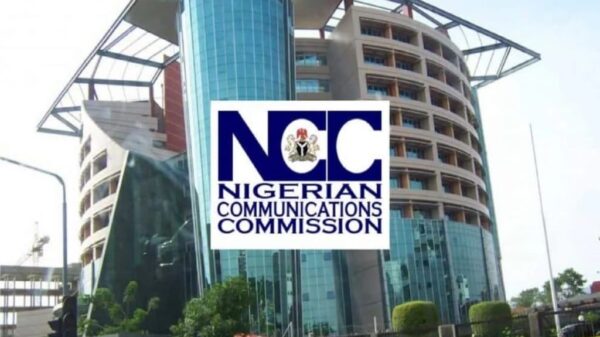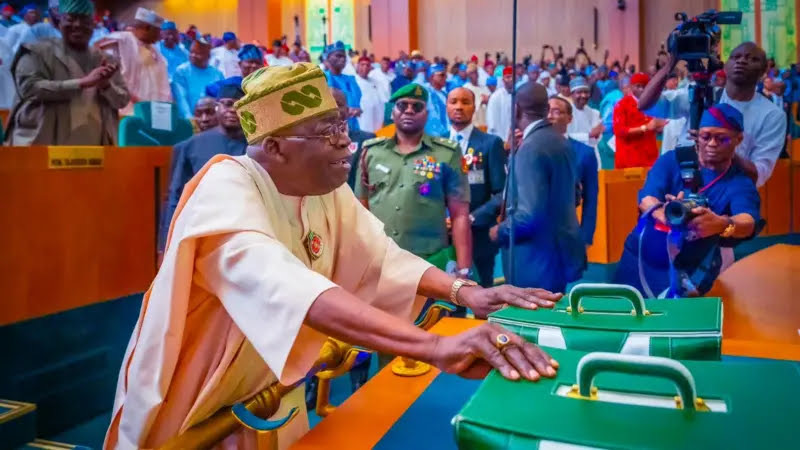The Independent Media and Policy Initiative (IMPI) has dismissed the criticism of the 2025 budget proposal by former Vice President Atiku Abubakar as a tirade that is not grounded in fact.
The former presidential candidate of the Peoples Democratic Party PDP had claimed that the budget estimates recently presented by President Bola Tinubu lacked structural reform and fiscal discipline.
But the policy think tank maintained in a statement signed by its Chairman Dr Omoniyi Akinsiju that the budget had a better capital expenditure to recurrent ratio than previous budgets including those from the administration Atiku served as Vice President.
IMPI said: “For starters, we contend from a point of fact that indeed, this is the first time since the return to democracy that the country’s budget reflects higher projected capital spending to recurrent expenditures ratio at 52% capital expenditure compared to 48% per cent recurrent expenditure.
“This is contrary to Atiku’s stance that the budget proposal lacks structural reforms and fiscal discipline especially as related to the disproportionate focus on debt servicing, which stands at N15.8 trillion (33% of total expenditure). This is nearly matching the capital expenditure of N16 trillion (34%) with recurrent spending that remains excessively high at N14 trillion (30% of the budget).
“As a matter of fact, we submit that recurrent expenditure has always been higher than capital expenditure in Nigeria’s budgets. Between 1981 and 1990, capital expenditure was 43.34% of total expenditure, while recurrent expenditure was 56.66% between 2011 and 2019.
“To declutter Atiku’s perspective of the 2025 budget in this regard, we specifically direct his attention to the capital expenditure ratio to recurrent expenditure during his years in government as Vice President.
“For instance, the ratio of recurrent expenditure to capital expenditure in Nigeria’s 2001 budget was about 52% to 48% at N579.3 billion to N438.7 billion, respectively. In 2002, the ratio fell precipitously to 41.12% for capital expenditure, while recurrent expenditure increased to 58.82%.
“In continuation of the trend, the 2003 budget estimate of N765.132 billion for the year 2003 was made up of N508,768,350,687.00 as recurrent expenditure and a capital expenditure profile of N256,363,677.292 a clear shift of projected spending to recurrent expenditures.
“The insights derived from these ratios clearly underscore where the country was coming from and how the Tinubu administration has begun a paradigm shift from higher federal government spending. We do not in good conscience see any justification of Atiku’s dismissal of the 2025 budget estimate as lacking structural reforms and fiscal discipline.”
The think tank also pointed out from an analyst perspective how the 2025 budget proposal is big on fiscal discipline.
“Talking about fiscal discipline, we could not find a better testimony than the commitment by the President to reduce the inflation rate from the current high of 34.46% recorded in November to a low of 15% in 2025.
“To accomplish this, President Tinubu declared during the budget presentation to parliamentarians that the government will avoid inflationary spending.
“This, in our consideration, is a substantial commitment to understanding and embracing fiscal discipline in the conduct of government business and spending.
“No Nigerian leader in a similar fiscal situation had made such a commitment publicly.
“We also find Atiku’s questioning of the 85% performance of the 2024 budgeted capital expenditure without any form of evidence as rather curious and uncharitable. We counsel in this light that opposition politicians must eschew deliberate obfuscation and manipulation of facts and figures to hoodwink the populace.
“We observed that in the tradition of opposition denunciation of debt servicing figures even when they don’t provide effective deficit funding alternatives, Atiku made a singsong of the N15.81 trillion allocated to debt servicing. Our submission in this regard is that the administration is committed to clearing debt obligations that will be due in 2025. This builds global confidence in Nigeria as a credit-worthy sovereign with benefits that include cheaper priced debt if the country must approach the global debt arena for loans,” the group explained.
It also noted that despite devoting a third of the budget to debt servicing, the Tinubu administration increased allocations to its key priorities of defence, infrastructural development, education, and healthcare by more than 100 per cent.
End
























